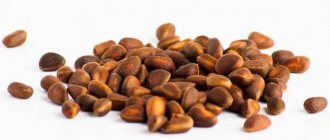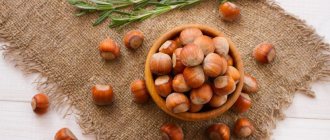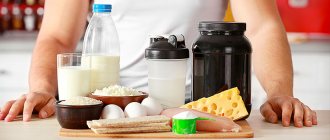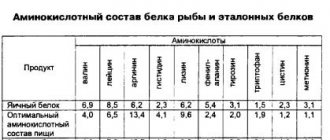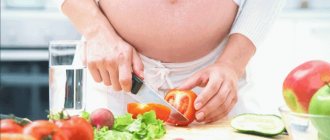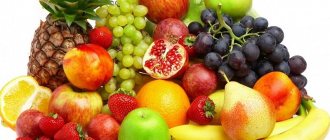What are the main benefits of peanuts?
The peanut, or ground nut, popular among athletes, is not actually a nut. This plant belongs to the legume family. The fruits form and ripen in the ground, which is why they are called earthen.
Peanuts are common throughout the world, but they are most beloved by Americans, who consume more than 500 million pounds of peanut butter per year. Perhaps this demand is explained by the fact that more than half of all bodybuilding enthusiasts live in this country.
Eating groundnuts in moderation helps:
- testosterone production;
- maintaining normal blood sugar levels;
- prevention of heart and vascular diseases;
- improving memory and ability to concentrate;
- improving the condition of skin and hair;
- neutralization of free radicals;
- increasing immunity;
- clearing the respiratory tract of mucus;
- maintaining liver function;
- stabilization of blood pressure.
Groundnuts take a long time to digest in the digestive tract, which helps suppress appetite and control hunger.
For vegetarian athletes, ground nuts are the best suppliers of protein with a complete amino acid composition.
Effects of peanuts on the body
There is such a thing as peanut poisoning, the symptoms of which even include anaphylactic shock. But this will not occur with moderate use of the product. The nut contains many useful components that enrich the body with essential vitamins and microelements. Peanuts help in the treatment of many pathologies:
- The product is used for diabetes mellitus to maintain normal blood glucose levels. However, consumption is allowed only in moderation.
- Peanuts help with constipation due to their high magnesium content. The component improves all metabolic processes and blood pressure.
- Peanuts contain fats that are used as a preventive measure against cardiovascular diseases.
- Peanuts can help improve the functioning of the immune system. It should be eaten during the period of activation of colds. In this case, they can be avoided or the recovery period of the body can be reduced.
- Parents often have a question: at what age can children include peanuts in their diet? It all depends on the individual characteristics of the body. Standard - from 5 years.
- The nut contains sufficient acid content that promotes the production of serotonin in the human brain. The hormone helps quickly eliminate depression and overcome stress.
- For those wondering whether it is possible to eat peanuts with pancreatitis, we answer: it is permissible to consume this food product for a disease in which stable remission has been achieved. Otherwise, you should avoid eating nuts.
- By regularly consuming groundnuts, you can improve the functioning of your brain. Vitamins have a positive effect on memory and improve a person’s ability to concentrate.
- Thanks to antioxidants, the body prevents the formation of tumors that can negatively affect human health.
- Do peanuts strengthen or weaken the intestines? The product in its raw form contains a large amount of fiber, which makes the intestines work with greater intensity. It improves digestion, serves as a prevention of gall diseases and removes harmful toxins from the body.
- Nuts are a storehouse of folic acid. It is necessary for the normal formation of the fetus during pregnancy. The product is best eaten before conception, in which case the body will be prepared for bearing the fetus. If there is a sufficient amount of folic acid in the body, then the child is guaranteed to be formed without pathologies.
Nutritional value of nuts
The quantity and quality of protein in peanuts is comparable to its presence in meat and fish. Beans are rich in vitamins B1, B6, B5, PP, H, E, folic acid, healthy omega-3, omega-6 and omega-9 fats.
Groundnuts contain large amounts of potassium, magnesium, phosphorus, iron, zinc, cobalt, copper, manganese, selenium, chromium, and molybdenum. Consuming them in moderation accelerates fat, carbohydrate, and protein metabolism.
100 g of peanut beans contains:
- protein (26 g);
- fat (50 g);
- carbohydrates (12 g).
Nuts are rich in silicon, of which 100 g contains more than 266% of the daily dose. This macronutrient is necessary for the absorption of potassium and calcium and is responsible for the elasticity of the skin, blood vessel walls, heart valves and tendons.
Ground beans contain arachidonic and linoleic acids, which ensure muscle elasticity and prevent the formation of cholesterol plaques in blood vessels.
Peanuts contain antioxidants, thanks to which the body fights against aging, Alzheimer's disease, and the growth of malignant tumors. Fiber, which is part of the legume plant, improves intestinal motility and prevents constipation, and the presence of tryptophan helps normalize sleep.
What are the benefits of nuts?
Many types of nuts contain significant amounts of protein. This alone has considerable benefits - for example, for many vegetarians these fruits serve as a source of proteins, and protein will never be superfluous in a bodybuilder’s diet. Consequently, nuts play an important role in bodybuilding.
Even more beneficial than their high protein content is that most nuts are rich in a variety of vitamins and minerals. Their cores contain vitamins B, A, E, C, PP; microelements necessary for the body such as zinc, iodine, iron; minerals: calcium, potassium, magnesium, phosphorus and much more.
But the greatest benefit of nuts for the human body is that they are one of the few natural sources of omega-3 and omega-6 fatty acids. Modern medical science has long recognized that these valuable unsaturated fats play an important role in the prevention of cardiovascular diseases and cancer.
Omega-3 and omega-6 are also essential for building muscle mass. Eating them has a positive effect on muscle growth, because these unsaturated fatty acids:
- increase testosterone production;
- suppress the production of cortisol, which triggers catabolic processes;
- help accelerate the processes of anabolism and fat burning.
A Harvard study involving 10,000 nurses for 35 years confirms that eating nuts and seeds prolongs life. The same data was obtained from a 12-year study of the eating habits of 34,000 vegetarians. Those who had nuts in their daily diet showed a significantly lower mortality rate from various diseases.
Numerous experiments confirm the activity of beneficial substances contained in various types of nuts against cancer cells and cholesterol deposits on the walls of arteries. Indirect evidence of their benefits can be the fact that peoples whose national cuisines widely use the fruits of nut trees are characterized by higher rates of health and life expectancy.
Peanuts in bodybuilding
Number of nuts in 100 calories.
Experienced athletes buy peanuts because of their optimal ratio of proteins, unsaturated fatty acids and vitamins.
In terms of amino acid composition, the product is close to animal protein, and in terms of folic acid content it is second only to asparagus.
Peanuts contain vitamin E, which is necessary for the absorption of folic acid. Nuts and peanut butter contain the amino acid L-arginine, an activator of NO synthesis.
This substance dilates blood vessels and accelerates the transport of nutrients and oxygen to the muscles.
Peanuts and peanut butter should be consumed in moderation. If the paste contains a lot of sugar, then it is best to leave such a jar on the store shelf, and prefer a product with a minimum of sugar, vegetable oil and preservatives.
It’s easy to prepare the pasta yourself using videos from the Internet. You will need high-quality peanuts, a blender for finely grinding the nuts, and vegetable oil to make the nut mass plastic. Before grinding in a blender, the beans are fried, which will improve the absorption of the product.
Daily intake of nuts
The goal of a bodybuilder is to gain muscle mass, not fat. To achieve this goal, you need to count the calories in your food. And groundnuts are high in calories.
100 g of beans contains the following number of kilocalories:
- fried - 626;
- raw - 551;
- salty - 611;
- peanut butter - 588.
Peanuts are a good filler for salads or desserts, saturating the body with energy and nutrients. But due to the increased calorie content, you can consume no more than 8 nuts per day, using them as dessert or adding them to dishes.
Pasta can be eaten on training days up to 3 tbsp. l., and when drying - no more than 2 tbsp. l. in the first half of the day.
When is the best time to eat: before or after training?
In sports, it is important not only to get nutrients from food, but also to prevent weight gain. To benefit from eating nuts, you need to take them at the right time. Pasta is a delicious dessert that will be completely absorbed and will not be deposited in subcutaneous fat if you eat 1 tbsp of it in the morning. l..
You should not eat peanuts immediately before or an hour before a workout. This food contains a lot of protein and requires 2-3 hours to digest in the stomach.
The second intake of peanuts should be 3-4 hours before training. Peanuts will be best absorbed if you eat a little of this product 1-1.5 hours after physical activity.
If the workout was in the evening, then it is better to postpone the peanut butter for another day. Due to their high calorie content, peanuts eaten after 5 pm will be partially deposited in fat.
Alternatively, you can add 4-5 nuts to a protein shake, after grinding them well in a blender.
The benefits of peanut butter in sports
The benefits of the product were appreciated by bodybuilders. Peanut butter jars are sold everywhere in sports nutrition stores. The benefits of peanuts for athletes include:
- contains 20 amino acids necessary for humans, a third of which are not produced by the body;
- vitamins E, group B act as natural antioxidants and restorers of the nervous system;
- manganese lowers blood sugar and helps reduce appetite;
- magnesium has a positive effect on the transmission of nerve impulses and restoration of the body;
- fatty oils – 50-53%. Fatty oils do not increase the level of “bad cholesterol” and are good for the heart and blood vessels;
- Folic acid affects the growth and renewal of body cells.
People involved in sports have different goals. Some people dream of gaining weight and increasing muscle mass. Someone dreams of losing weight. Some people need muscle definition. Peanut butter is a universal assistant in sports.
- Peanuts in bodybuilding are a source of plant-based protein, which is useful both for gaining muscle mass and for dieting. Protein is easily digestible and restores muscles well after physical activity.
- This is a high-calorie product, so it gives you a feeling of fullness for a long time.
Rules of use for athletes vary. One tablespoon contains 94 kcal, protein 8 grams. For training athletes, you can eat up to 4 tablespoons per day. Some professional bodybuilders talk about two spoons.
An approximate diet with peanut butter for athletes (we are talking only about paste, other necessary products are not taken into account here):
- breakfast – 1 tbsp. spoon with toast and banana;
- 4 hours before training outside the main meal with rye bread;
- an hour after physical activity to restore the body and grow muscles.
This is the average amount of peanut butter an athlete needs per day. Peanuts can be classified as natural sources of energy. And energy is necessary for athletes to improve training results.
Is it possible to eat peanuts while drying?
During drying, in order to achieve maximum muscle definition, saturated fats are completely removed and carbohydrates are sharply limited. The intake of protein and unsaturated fatty acids is reduced.
Given these restrictions, you are allowed to eat no more than 50 g of raw or roasted nuts during drying. They need to be fried without oil or salt. Oil increases the calorie content of the product, and salt promotes water retention in the body, which prevents the development of muscle relief.
Drying peanut butter should be excluded or limited, because to enhance the taste it is prepared with honey or molasses, which increases the calorie content. You can eat no more than 2 tbsp per day while drying. l. peanut butter. The first spoon is taken at breakfast, and the second spoon is taken no later than 5 o’clock in the afternoon.
Peanuts can be eaten during drying, but in small quantities.
Is it possible to eat nuts while drying?
Nuts can be very useful during drying, because they contain healthy Omega-3-6 fats, which promote fat burning. But nuts are too high in calories; just 100g of almonds will bring you more than 600 calories, which is a third of the average daily calorie intake during the diet.
Therefore, nuts should be eaten in very moderate quantities during drying. No more than 50g per day, which is about 300 calories. Also, nuts should only be eaten without salt, as they retain water and interfere with maintaining muscle definition. We are still inclined to believe that nuts are preferable during muscle gain rather than during a diet.
How to make peanut butter at home
Proper nutrition is the key not only to health, but also to the training progress of any athlete. So, there is a list of products that must be present in an athlete’s diet. These include various types of nuts.
Should you choose whole nuts or peanut butter?
Both whole nuts and peanut butter are beneficial for a bodybuilder. Raw beans contain a higher content of vitamins, which are partially destroyed during roasting and heat treatment.
But heat treatment destroys the substances contained in raw beans that interfere with the absorption of protein. In addition, when frying, a film is formed on the nuts, protecting them from oxidation by atmospheric oxygen, and the antioxidant polyphenol is also formed.
The best paste is Raw, which is in demand in Canada and the USA. To produce this product, peanuts undergo special testing to ensure they are not contaminated with mold, which is harmful to the liver.
The product has a reduced amount of sugar and additional components that are added for viscosity and enhanced taste. The nuts are processed to make a paste using emergency drying, which preserves all their beneficial properties.
Walnuts
If you're injured, the Walnuts are there to help, just like Chip 'n' Dale. The omega-3 fats found in these nuts promote recovery by forming natural anti-inflammatory compounds. They speed up the body's recovery and reduce muscle irritation after exercise. Unfortunately, our body is not able to produce omega-3 fats on its own, so they must be obtained externally - that is, from what we eat. Fatty fish, vegetable oils and walnuts - we need all this from time to time. In addition, walnuts contain linolenic acid, which is essential for maintaining brain, eye and heart function.
One handful (32 grams) of walnuts contains 91% of the recommended daily value of omega-3 fats. It is very important not to overdo it and stop after eating 5-6 pieces. The fact is that walnuts are very high in calories - 100 grams contain about 650 calories.
Anastasia Yankova
Russian champion in Thai boxing, model:
As for replacing meat with nuts, then, of course, any extremes cannot be beneficial for the body. I myself do not eat red meat and poultry, but I do eat fish, seafood and all sorts of protein mixtures, that is, sports nutrition. If, in combination with sports nutrition and a balanced diet, you include nuts in your menu, then they will help replenish the norm of fats and protein. But they cannot be used as a salvation and panacea, because in addition to protein there is a lot of fat. Carbohydrates are also present there. I know how some girls say: “Well, I eat right, I don’t eat chocolates and rolls.” And then you ask them how many nuts they eat. And it turns out that there are packages of 200 grams per day. And they simply don’t pay attention to how many calories they accumulate because of this. That is, you can get better from healthy foods - very easily.
Cons and contraindications of nuts
As a product with a high protein content, peanuts are a strong allergen. It should not be consumed in large quantities due to the risk of allergic urticaria or Quincke's edema.
The presence of enzymes that slow down the absorption of protein and phytin, which binds calcium, zinc, and phosphorus, also reduces the nutritional value of this product in a bodybuilder’s diet. The increased concentration of sodium in groundnuts promotes water retention and the appearance of edema if the product is taken in heavy doses.
The disadvantages of eating peanuts include the quantitative predominance of omega-6 over omega-3 and omega-9 acids. Nutritionists do not advise consuming raw peanuts due to the increased risk of mold infection and the accumulation of pesticides in the body.
You should not eat ground beans if you have diarrhea or digestive disorders, as they contain a lot of fiber and have a laxative effect on the intestines.
So nuts or beans
Well, an underground groundnut from the legume family. So, noticed in connections, so to speak. These connections do not discredit him, but quite the contrary. This plant grows in such a way that its fruits, when ripe, sink to the ground and bury themselves in the ground.
It is correct to call the subject of our consideration leguminous grass. Wikipedia says so. For us, even call it a pot, just don’t put it in the oven. We are interested in the product itself, because it is a real treasure trove of elements beneficial to the body.
Calorie content of peanuts – per 100 grams 662 kcal, 1 pc. fried without oil, salted, in chocolate contains 5-6 kcal. With such activity, imagine that it is included in weight loss programs, since a handful of fruits makes an excellent snack, will add strength, and serotonin will correct a gloomy mood. I said about vitamins, I said about macroelements.
As a food containing antioxidants, peanuts are involved in anti-aging programs. It improves memory and maintains the walls of blood vessels in satisfactory condition. Peanuts willingly give up all their treasures if they are dried in the oven or fried. The oil it produces does an excellent job of treating some skin diseases.
How is it harmful? – Firstly, you should not eat peanuts with brownish husks. This is where the strong allergen is! Be sure to clean. We must remember that peanuts are digested slowly and it is not recommended to eat them in large quantities, so as not to clog your stomach.
Knowing its high calorie content, obese people should refuse such a delicacy. Peanuts will also not be beneficial for patients with gout and arthritis, diabetes, and varicose veins. Pregnant women should abstain.
